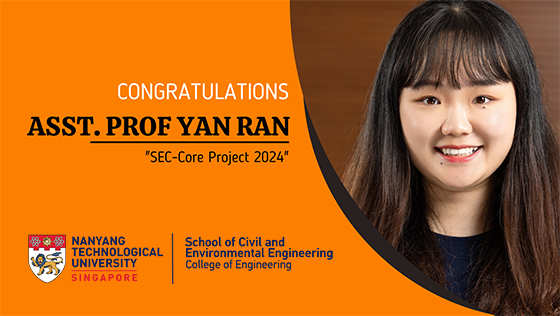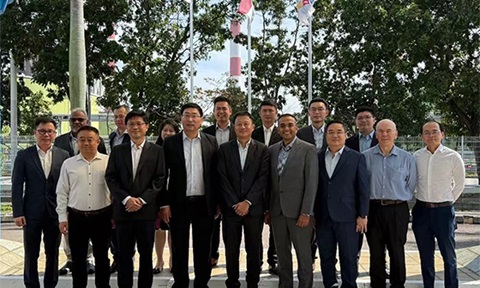Award of SEC-Core Project 2024 - Assistant Professor Yan Ran
Congratulations to Assistant Professor Yan Ran on the award of SEC-Core Project 2024 for her project: Quantifying the Technological Impacts and Socioeconomic Costs of Marine Alernative Fuels: Evidence from Life Cycle Assessment and Techno-economic Assessment.

Project Write-up
To reduce greenhouse gas (GHG) emissions from shipping activities and facilitate digital trade lanes, a number of Green and Digital Shipping Corridors (GDSCs) have been established between Singapore and major ports, including Port of Rotterdam, Ports of Long Beach and Los Angeles, ports in Japan, and ports in Australia. As it is expected that zero or net-zero emission fuels, such as LNG, methanol, hydrogen, and ammonia, are to be used on GDSCs, they are believed to have great potential to reduce 20% to 30% of emissions from international shipping by 2030. However, few studies have used real shipping big data to quantify specific GHG emission reductions achieved by alternative fuels under different future scenarios as their technological impacts. Moreover, adopting such alternative fuels is usually associated with high economic costs.
Hence, this proposal aims to evaluate the emission reduction potential and socioeconomic costs of deploying different alternative fuels on GDSCs using life cycle assessment (LCA) and techno-economic assessment (TEA) methods. Based on shipping big data from AIS and ship fuel consumption from noon reports, the energy demand of ships operated on a GDSC is first quantified using innovative data-driven models. Then, considering different future scenarios of traffic volume and policies, LCA for conventional and alternative marine fuels is conducted to quantify the potential of alternative fuels to reduce various environmental footprints. The TEA method is used to analyze the socioeconomic costs of different marine alternative fuels over conventional fuels.
The proposed project pioneers in adopting big data and artificial intelligence models to evaluate the technological and socioeconomic impacts of different marine alternative fuels over conventional fuels on GDSCs under different scenarios. It can enhance the resilience, efficiency, and sustainability of maritime transport and global supply chains and contribute to Maritime Singapore Green Initiative and Maritime Singapore Decarbonization Blueprint.







